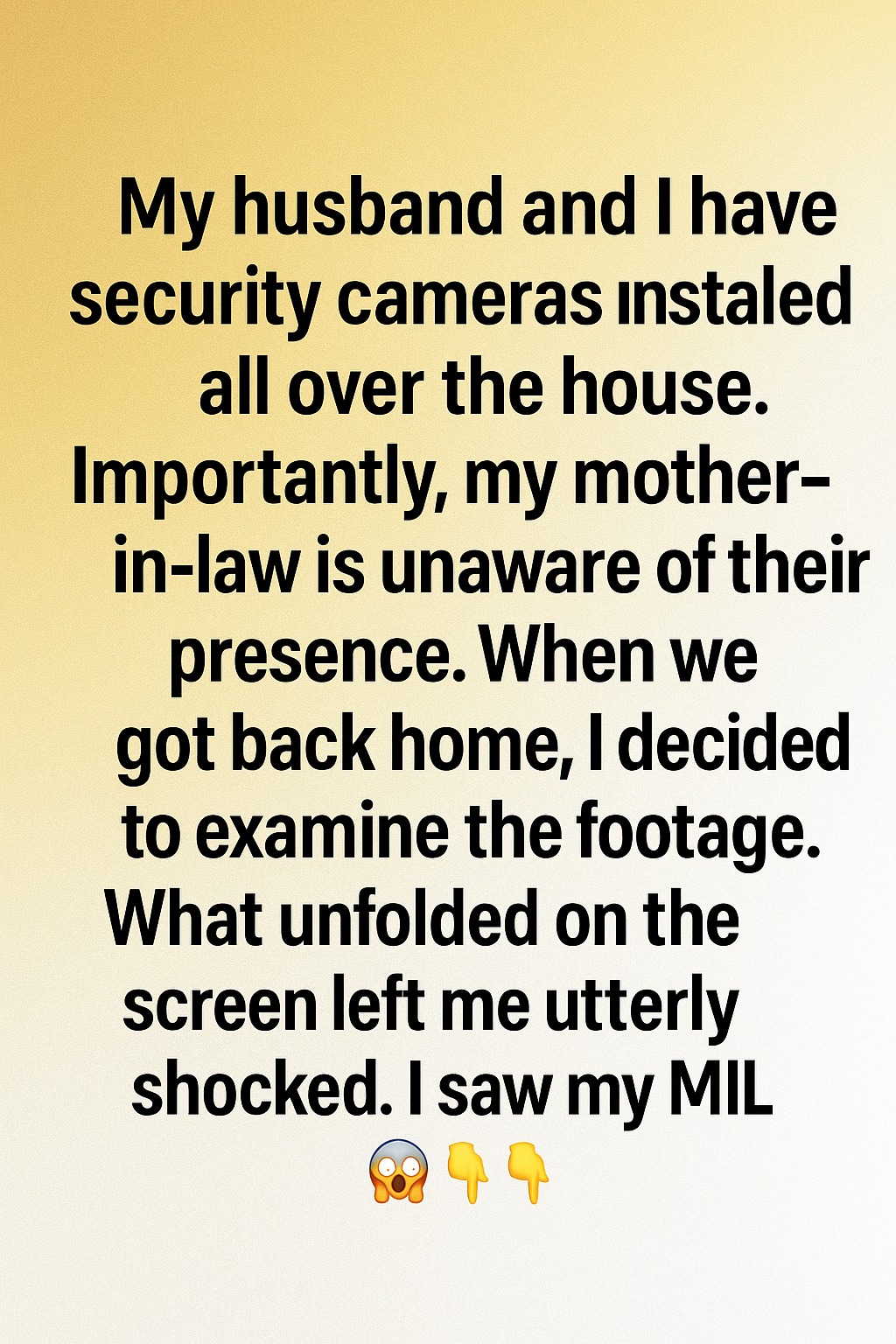My husband and I had recently installed security cameras throughout our home, mainly for peace of mind. We never told my mother-in-law about them, assuming there would never be a reason to. One weekend, we left her in charge of the house while we went away for a short trip. When we returned, something in the way she greeted us felt slightly off, though I couldn’t quite place why. That evening, curiosity got the better of me, and I decided to check the footage.
At first, everything looked ordinary — her watching TV, cooking, and moving around the house. But then, a few hours in, I saw something that made my heart sink. She was going through our personal belongings, opening drawers, and even checking inside closets. It wasn’t malicious in the traditional sense, but it was invasive. She moved through our private spaces as if they were her own, unaware the cameras were recording every moment.
I sat in silence, unsure how to feel — hurt, disappointed, or just stunned. I didn’t want to start a family argument, but ignoring what I’d seen felt wrong too. So I waited until my husband was home, showed him the footage, and we talked it through. We realized this wasn’t about catching her doing something “bad” but about setting clear boundaries in our home. It was a moment that tested our ability to communicate as a couple.
The next day, we invited her over for coffee. Calmly, we explained that we valued her presence but needed our privacy respected. She was embarrassed at first but admitted she’d been “curious” and didn’t mean any harm. That conversation opened a door we didn’t know was closed — it led to more honesty, more respect, and a clearer understanding of one another. Sometimes, the truth on camera doesn’t just reveal actions — it reveals opportunities to grow as a family.
